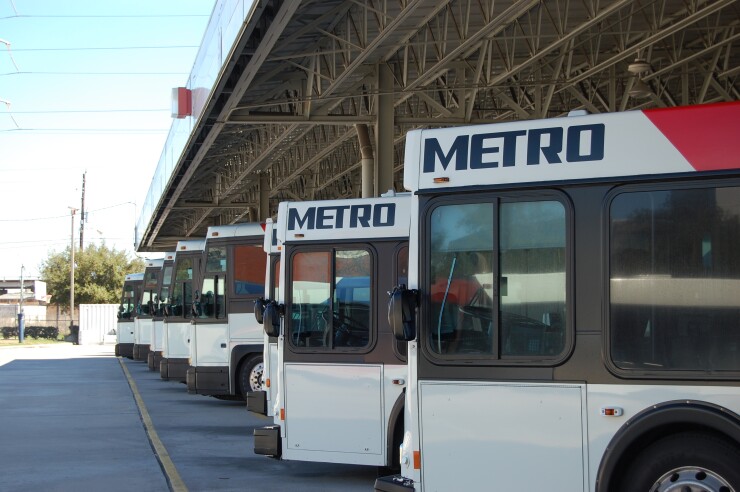The Metropolitan Transit Authority of Harris County will ask voters for $3.5 billion of bond authority to expand the Houston area’s network of bus, rail and managed lanes projects.
In a unanimous vote, the Metro board of directors placed the proposal on the district’s Nov. 5 ballot. So far, this is the largest single bond proposal on a Texas ballot this year.

The bond program known as MetroNext is “a wonderful plan,” said board chair Carrin Patman.
“It’s going to be transformative to the region,” she said.
The projected cost for MetroNext is $7.5 billion, but more than half of that would come from state and federal transportation funds.
Patman noted the bond authorization would be good for 20 years and that, if approved, debt would be issued as projects were ready and debt-service coverage was in place.
“We use debt with a federal match and therefore leverage federal dollars,” she said.
“We will issue debt in increments that make financial sense,” she said.
“When you combine the bonds with federal money and grants, it comes to nearly $11 billion for projects,” said board member Sanjay Ramabhadran. “Yes, we need more, but this is as bold a plan as we can manage.”
As a city with some of the worst traffic congestion in the nation, Houston is often seen as a laggard in mass transit, even though Metro is celebrating its 40th anniversary this year. Metro’s nascent light rail system is much smaller than that of the Dallas Area Rapid Transit District’s but would grow by 16 miles under the bond proposal.
MetroNext would also expand Houston’s bus rapid transit corridors, which Patman called more flexible and lower cost than fixed rail. Metro also manages the high occupancy vehicle lanes on major freeways.
Voters originally authorized Metro to issue a maximum of $640 million of sales tax bonds to finance construction of the light rail system, which was exhausted in 2011. The authority is allowed to issue parity contractual obligations secured by the sales tax, without an aggregate maximum, to purchase personal property such as rolling stock but not for light rail construction.
All of Metro's sales and use tax bonds and contractual obligations are fixed rate. It also has a $165 million commercial paper program.
Patman noted that Metro’s bond ratings of triple-A from S&P Global Ratings and Aa2 from Moody’s Investors Service are advantageous for bond issuance.
“Metro has a history of conservative budgeting leading to solid financial performance,” Moody’s noted in a November report. “Notably, METRO has ended each fiscal year since 2002, with an operating budget surplus in fiscal 2017 that amounted to $16 million. We expect the agency to continue to manage its budget and debt carefully to maintain healthy margins and satisfactory liquidity.”
One factor that could affect sales tax growth for Metro would be a downturn in the oil and gas sector. The industry has experienced a rash of corporate bankruptcies in the past year.
Houston's concentration in the energy sector had a negative impact on Metro's sales tax collections during the downturn that began in 2014 Moody’s said.
“In 2016, Metro's sales taxes fell by 4.1% year-over-year, as oil prices bottomed out and job growth slowed, rebounding slightly in 2017 with nearly 1% growth,” analysts noted.





